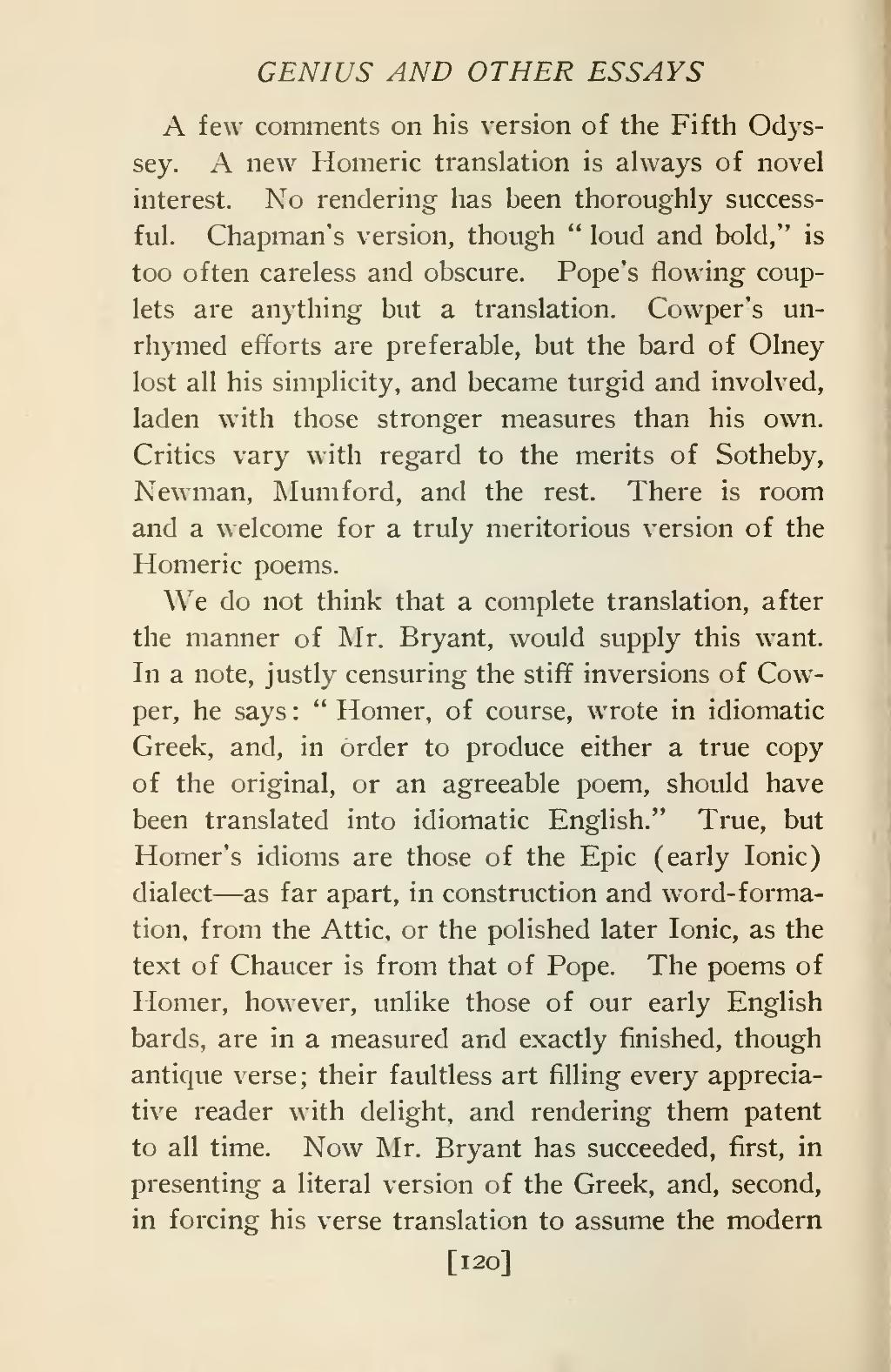GENIUS AND OTHER ESSAYS
A few comments on his version of the Fifth Odyssey. A new Homeric translation is always of novel interest. No rendering has been thoroughly successful. Chapman's version, though "loud and bold," is too often careless and obscure. Pope's flowing couplets are anything but a translation. Cowper's unrhymed efforts are preferable, but the bard of Olney lost all his simplicity, and became turgid and involved, laden with those stronger measures than his own. Critics vary with regard to the merits of Sotheby, Newman, Mumford, and the rest. There is room and a welcome for a truly meritorious version of the Homeric poems.
We do not think that a complete translation, after the manner of Mr. Bryant, would supply this want. In a note, justly censuring the stiff inversions of Cowper, he says: "Homer, of course, wrote in idiomatic Greek, and, in order to produce either a true copy of the original, or an agreeable poem, should have been translated into idiomatic English." True, but Homer's idioms are those of the Epic (early Ionic) dialect—as far apart, in construction and word-formation, from the Attic, or the polished later Ionic, as the text of Chaucer is from that of Pope. The poems of Homer, however, unlike those of our early English bards, are in a measured and exactly finished, though antique verse; their faultless art filling every appreciative reader with delight, and rendering them patent to all time. Now Mr. Bryant has succeeded, first, in presenting a literal version of the Greek, and, second, in forcing his verse translation to assume the modern
[120]
